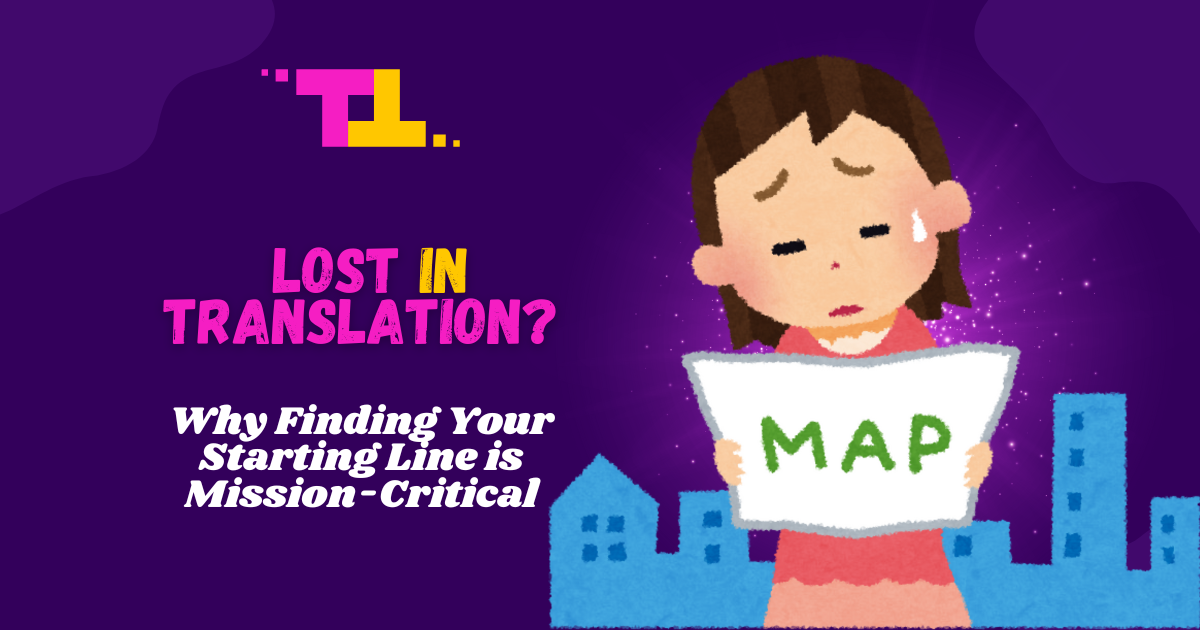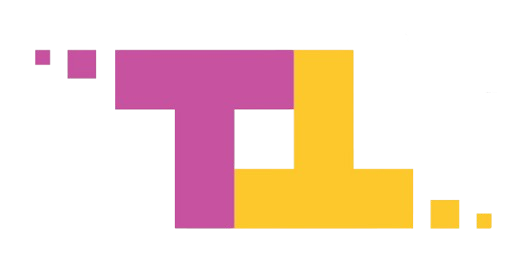Lost in Translation? Why Finding Your Starting Line is Mission-Critical

Imagine watching your child trying to navigate London with a map of Tokyo. Sounds like the beginning of a rather unfortunate adventure, doesn’t it? That’s precisely what happens when your child jumps into language learning without knowing their starting point. Spoiler alert: It rarely ends well.
The “I’m Fine” Facade As parents, we’ve all seen it. That moment when we ask our child if they understand, and they nod enthusiastically while their eyes scream “HELP!” It’s like watching them pretend to know where they’re going when they’re hopelessly lost – it might save face for a moment, but they’ll end up even more confused and frustrated, with no idea how to get back on track.
Why Your Child’s Starting Line Matters (No, Really) The Building Blocks Aren’t Optional Think of language as your child’s magnificent tower of Jenga blocks – try to pull out the foundation pieces, and the whole thing comes crashing down faster than you can say “grammatical structure.” Each level builds upon the previous one, and those gaps? They have a nasty habit of showing up at the most inconvenient times (like during that presentation they thought they had in the bag).
The “Too Advanced” Trap Watching your child start with material that’s too advanced is like seeing them try to run a marathon without ever having jogged around the block. Sure, they might manage a few steps, but soon they’ll be face-down on the pavement, wondering where it all went wrong. And let’s be honest – that’s not an experience any parent wants for their child.
The Reality Check (It Won’t Hurt… Much) Finding your child’s true starting point might bruise their ego temporarily (and possibly yours too), but it’s like ripping off a plaster – quick, slightly painful, but ultimately for the best. Here’s why:
- They’ll save time (and tears) by not trying to decode Shakespeare when they should be starting with “See Spot Run”
- Their confidence will build naturally, instead of being shattered by constant failure
- They’ll actually remember what they learn, rather than memorising phrases like a confused parrot
The Secret Sauce of Success The most successful language learners aren’t necessarily the most talented – they’re the ones whose parents and teachers were honest about their starting point and helped them methodically build their skills from there. Think of it as your child’s personal language GPS – you need to know where they are before you can help them plot the route to where they want to be.
Your Child’s Next Move (And How You Can Help) Ready to find your child’s true starting line? Here’s what to do:
- Help them put their ego in a box (you might need to store yours there too)
- Encourage them to take that assessment (yes, the one they’ve been avoiding)
- Trust the process (we promise we know what we’re doing)
- Support them in embracing their level (remind them every master was once a beginner)
The Grade vs Level Reality Check Let’s have a heart-to-heart moment here, parent to parent: Sometimes your child’s current language level and their grade don’t match up. And you know what? That’s completely okay. Life happens. Maybe they switched schools, maybe they had a rough year, or maybe English just hasn’t been their cup of tea (or hot chocolate, if they’re not into tea).
Here’s the truth: Your child’s grade level is just a number, but their language journey is uniquely theirs. Whether they’re in Grade 10 but need to strengthen their Grade 7 foundations, or in Grade 8 but struggling with Grade 5 concepts – we’ve got their back (and yours). Think of it like building a house; we’d rather spend time fixing the foundation now than having the whole structure wobble later.
The good news? By starting exactly where your child is (not where you think they “should” be), we can build those skills up systematically. Before you know it, they’ll not only catch up but might even zoom past their goals. Remember, it’s not about where they start – it’s about where they’re heading and how solidly you help them build their path to get there.
The Bottom Line Your child’s starting line isn’t a judgment on them or your parenting – it’s their launchpad. And trust us, when they begin from the right point, they’ll progress faster than a teenager spotting the last piece of pizza. So, ready to help your child find out where they really are in their language journey?
Take that first step together. Their future self will thank you (probably in perfect grammar).
P.S. If you’re still hesitating, remember: Even the most sophisticated GPS can’t help your child if they don’t know where they’re starting from. Just saying.
Don’t Just Take Our Word For It!
Look, we know we might seem a tad enthusiastic about finding your true language level (okay, maybe more than a tad). But we’re not the only ones waving the “know-where-you-stand” flag – though we might be the ones having the most fun with it! Here’s what some other brilliant minds in the language learning world have to say:
- Importance of Building Good Foundation for the English Language
- The Importance of Teaching Foundational Skills
- Why It’s Important To Learn At The Correct Level
Nerdy Note: These links were working when we shared them. If you spot any that have gone on holiday without telling us, give us a shout and we’ll update them. While these aren’t FlippedT resources, they show that experts everywhere agree – knowing your starting point isn’t just our quirky obsession, it’s actually rather important!
